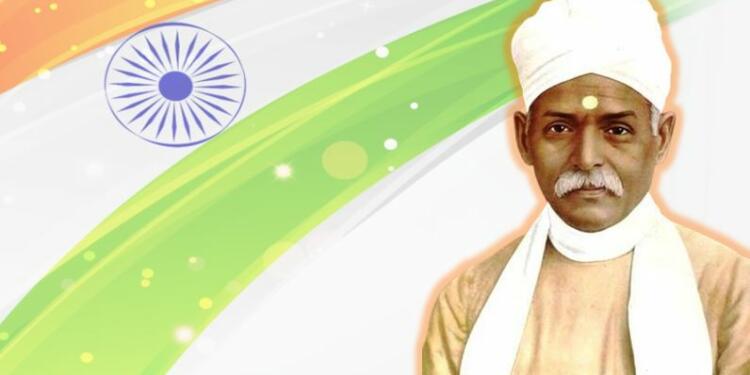The pre-independence intellectual movement in India was dominated by the influence of liberalism propagated by Britishers. However, there were few great individuals who understood its anti-Hindu consequences and established academic fortresses to protect our Dharma. Mahaman Madan Mohan Malaviya was one of them.
Shri Malaviya belonged to an erudite family
Mahamana was born on the 25th of December (1861) in Prayagraj district of Uttar Pradesh. His ancestral origin can be traced back to Malwa region of modern-day Madhya Pradesh. Due to this reason, his family members used Malaviya as a surname. He came from a well erudite family and his predecessors were well respected for their knowledge of Bhartiya Granths.
Also read: Done Reading all Spicy News About The BHU Incident? Now Read the Truth
Shri Malaviya completed his matriculation from Muir Central College, now known as the University of Allahabad. In spite of facing financial troubles, he went on to attain his B.A. from University of Calcutta. Later, Shri Malaviya took up the job of an assistant teacher at Government High School in Allahabad.
Political and journalistic journey
Soon, Shri Malaviya got interested in the independence movement of India. He attended the second conference of Congress in 1886, where his address at the session brought him laurels from Chairman Dadabhai Nairoji, as well as from Raja Rampal Singh, ruler of Kalankar. In 1887, Shri Malaviya became an editor for Hindustan — the Hindi weekly. Along with his then-ongoing law degree course, he was offered a co-editorship of an English Daily — The Indian Opinion. He later moved to Allahabad district court to practice his legal profession, and soon progressed to Allahabad High Court.
Along with his legal practice, he was involved in numerous independence-movements as well. When Congress started to become overly liberalised during early 1900s, he provided a sense of balance to the party. He became Congress president in 1909 and 1918, and he relinquished the party in 1933.
Educationalist at core, he was a key force behind BHU
Shri Malaviya was an educationalist from his core. To further his mission of propagating educational values in society, he decided to quit advocacy in 1911. He is known for being one of the foremost faces who strived to protect Sanatani moral system in British-occupied India.
Also read: BHU celebrating Iqbal is like Tel Aviv University celebrating Hitler Jayanti
After sensing the Congress party’s drift towards Muslim appeasement politics, he started Hindu Mahasabha during Kumbh Mela in Haridwar, in 1915. Even before establishing this massive organization, he along with Annie Besant and others, were already working for establishing a university that would impart specialized Hindu education in country.
Modern education along with moral value
In his published plan for the university, Shri Malaviya had laid emphasis on the idea behind BHU. He had clearly dreamt of a university that would be imparting scientific and technical knowledge along with the value system of India’s religion. The layout map read “The millions mired in poverty here can only get rid (of it) when science is used in their interest. Such maximum application of science is only possible when scientific knowledge is available to Indians in their own country.”
Though Shri Malaviya’s main motive was to establish a base for Hindu education, he was aware of practical realities and decided to use English as a medium of instruction. He also laid out a plan to introduce Hindi and other languages at later stages of development of the university.
Also read: Tazia procession has NEVER BEEN a part of BHU’s ethos. And it’s a desperate attempt to secularize it
On Vasant Panchami day of 1916, the foundation for the university was laid by the then-Viceroy of India. The university was built over 5.3 square km of land donated by Kashi Naresh. Mahatma Gandhi, Jagadish Chandra Bose, C. V. Raman, Prafulla Chandra Roy, Sam Higginbottom, and Patrick Geddes were invited as guest speakers. After more than 105-years of its establishment, BHU is one of the few institutions that have successfully amalgamated modernity and spirituality.
A visionary who was an all-rounder in true sense
Lawyer, editor, politician, academician, educationalist and a teacher — Shri Malaviya was an all-in-one gift to India. If not for him, we would not be talking about a morality-based education system. Technological advancement without a value system sends people into nihilist utopia. Shri Malaviya was one of the first to recognise this, and addressed this with full-fledged action.
He passed away in 1946. In spite of his significant contributions, his efforts were barely recognised beyond academic circles. Successive Congress government constantly ignored his legacy. However, the current government under PM Narendra Modi aptly honored him with posthumous Bharat Ratna award in 2015.


























